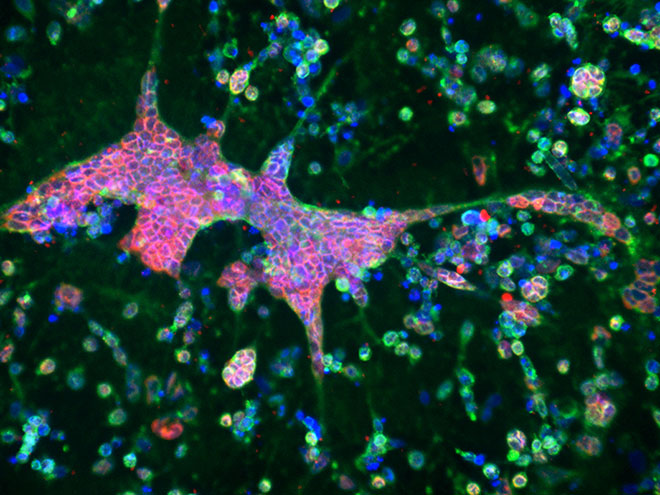Hospitalization with common infections like the flu increases the risk of developing Alzheimer’s or dementia by more than 20-fold over the next year.
Could viruses cause Alzheimer’s or other neurodegenerative diseases? There is mounting evidence supporting the link and turning the tide on what was once considered a fringe idea. Viruses like the flu, SARS-CoV-2, and herpes, are linked to an increased risk of developing Alzheimer’s or dementia while the Epstein-Barr virus was causally linked to multiple sclerosis. Now, a new study published in Neuron shows that hospitalization with common infections like the flu may substantially increase the risk of developing Alzheimer’s, Parkinson’s, and a variety of other conditions.
These findings are based on more than 800,000 medical records from the UK and Finland. Severe viral infection doubled the risk of being diagnosed with Alzheimer’s 15 years later. These effects were much greater in the short-term, with hospitalized patients being up to 23-times more likely to develop Alzheimer’s within a year of their stay. It is still hard to tell whether the virus caused the disease or whether people who developed these disorders were also more vulnerable to viral infection in the first place.
“Over the years, several lab-based experiments have suggested that viruses may be a risk factor for neurodegenerative disorders,” Dr. Mike Nalls, leader of the NIH Center for Alzheimer’s and Related Dementias Advanced Analytics Expert Group and senior author of this study said. “What struck us is that we were able [to] obtain similar results by data mining medical records.”
Even 15 years later, the study finds,
common infections
can double the risk of developing a
neurodegenerative disorder.
Over email to Being Patient, Nalls emphasized that their research only assessed associations in patients who were hospitalized with a viral illness. It is unclear whether this meant that people were diagnosed with Alzheimer’s or other forms of dementia at an early age. “Due to the type of data we worked with, we were unable to investigate the relationship between viral exposures and age at onset of a neurodegenerative disorder,” Nalls said.
Within a year of infection, these risks jumped between 20 and 60-fold. But the risks waned over time. Over the course of 15 years, severe cases of the flu doubled the risk of developing Alzheimer’s or other forms of dementia. The infection was also linked to a two-to-seven times increased risk of developing Parkinson’s, and amyotrophic lateral sclerosis. Less common infections like genital warts, encephalitis, and meningitis increased the risk of developing Alzheimer’s, and other degenerative diseases at least five-fold.
The main limitation of this work is that it relied on electronic health records belonging to people who were hospitalized with infection. It does not explain whether a mild or moderate infection increased the risk of these conditions as well. “Our study did not directly address these mechanistic issues,” Nalls said.
The study received overwhelming media coverage as some scientists speculated on what these results told us about neurodegenerative disease and the risk posed to us by viruses like the flu or SARS-CoV-2. Nalls did not provide any speculation over the implications of the study, since SARS-CoV-2 infection risk was not analyzed.
Ruth Itzhaki, a professor from the University of Manchester who has studied the viral-Alzheimer’s link believes that the study strengthens the case that the Herpes virus can cause the disease. “In life, infections and other types of damage…are known to cause reactivation of herpes viruses, with consequent inflammatory and direct viral damage,” she wrote on AlzForum.
Many of the viruses featured in this latest research can awaken dormant Herpes virus which could kickstart brain degeneration. This also strengthens the case for vaccination to protect against these conditions. Getting a flu shot is associated with a 40 percent lower risk of developing dementia later in life.
Dr. Oliver Goldhart from the Technical University of Munich wrote on AlzForum that adding in vaccination information could help solve “solve the chicken-and-egg problem.”





